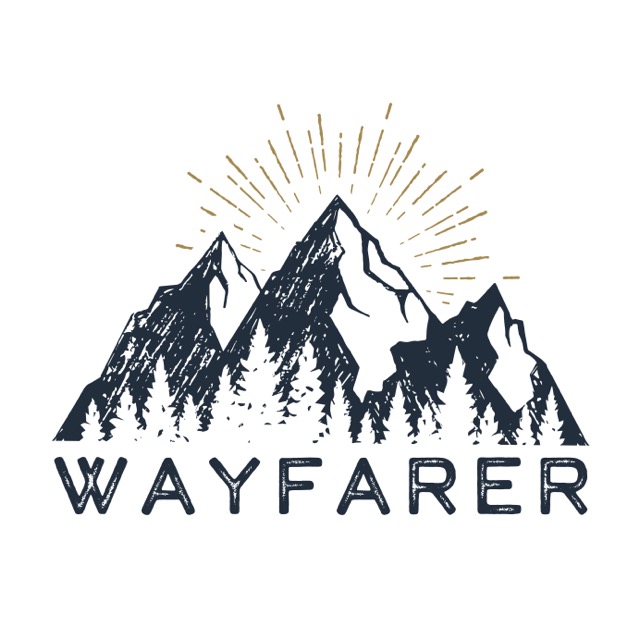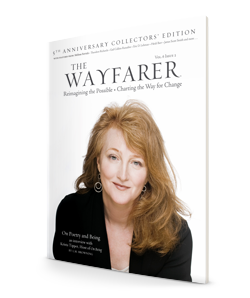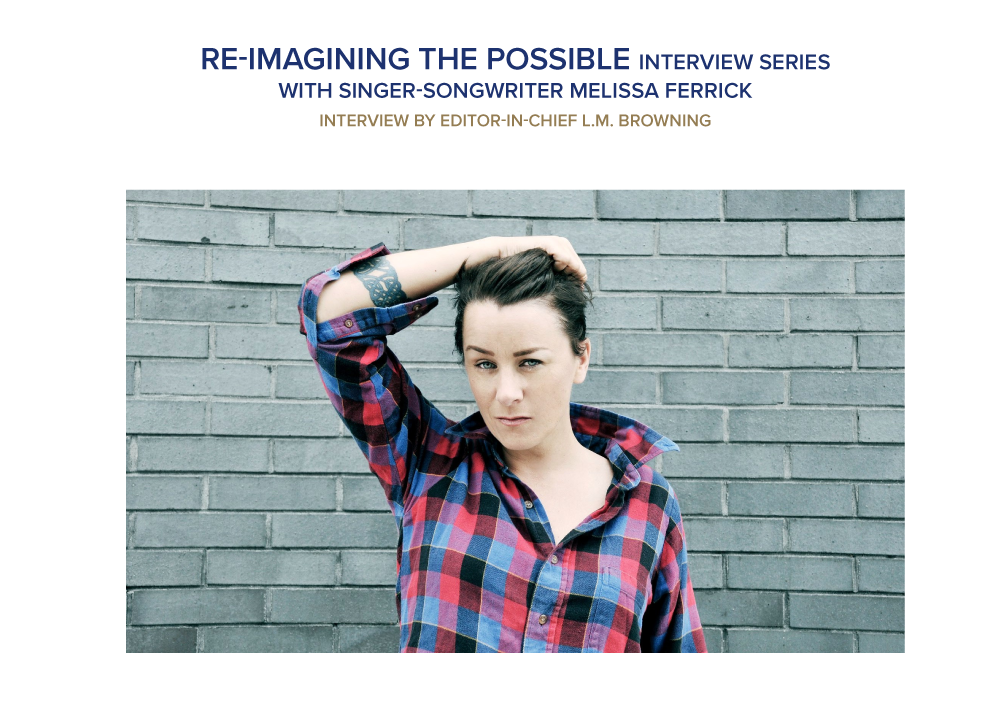
There is a hum and buzz circling through the rafters of the packaged room. It is the eve of my 35th birthday. I’m in the iconic Iron Horse music venue in Northampton, Massachusetts waiting for Melissa Ferrick’s show to begin. It will be one of her last shows for the next few years as she enters Harvard University Graduate School of Education and moves on to the next phase of her career. A few weeks previous, I had an opportunity to speak with her about her career as an indie artist.
Ferrick started her career with Atlantic Records in 1992 at the age of 21, after opening up for Morrissey in the US and UK, she released her debut and sophomore albums on Atlantic before moving on to Independent label W.A.R. Records between 1996-1999. In 2000, Ferrick launched her nationally distributed independent record label Right On Records; her publishing catalog is represented worldwide by Raleigh Music Group. Over the last 24 years, Melissa has released over 17 albums.
Leslie: You started as a musician as a child playing the violin. In elementary school, you went on to learn the trumpet and bass guitar, which in turn brought you into songwriting in high school and acceptance into the New England Conservatory’s Youth Orchestra and Wind Ensemble. What is your earliest music-focused memory?
Melissa: Driving to violin lessons with my mother. She used to let me steer the car on the back road to my teacher’s house just off the highway. I remember the feeling of pride both my mother and my teacher instilled in me. This time alone with my mother is one of, if not the fondest memory that I have of my childhood.
Leslie: In 1992, at the age of 22, after a successful tour with Morrissey, the major labels came calling and you signed with Atlantic Records. You release your debut album Massive Blur and the follow-up, Willing to Wait. Shortly after that, Atlantic drops you. In other interviews, you’re said you “bottomed out” after that and struggled with addiction. Tell me, what inspired you to push through that? What did you hang onto during that time? What ultimately pulled you through it?
Melissa: I had moved across the country in 1992 after signing with Atlantic and over the next four years I would record and promote two albums, complete four international and five US tours. 1996 was for me, a year of complete change—transformation both inside and out. I was 26 years old and had to face the fact that addiction to alcohol had taken over my life, booze was making choices for me now, not me making choices for myself. I have had to learn recovery from addiction is a daily reprieve and a commitment to living a spiritual practice that has been laid out for me and countless others. There is a solution, there is freedom from addiction, but I cannot do it alone.
Leslie: In the wake of what happened with Atlantic, you’ve built an impressive career as an indie artist—17 albums, teaching at Berklee College of Music, opening your own label: Right On Records, doing over 150 shows a year with artists like Bob Dylan, Ani Difranco, K.D. Lang, Marc Cohn, The Indigo Girls, and more. What would you say to those artists who are just starting out and who want to make a living as a musician? What would you go back and tell your 19-year-old self?
Melissa: To the first part of this question, what would I say to an artist who is just starting out? I would say Jump and the net will appear, believe in what you are doing, be kind to others and yourself, take care of your mind, body and spirit and your art will soar. Take the necessary steps to secure your compositions and set up your releases with intent; don’t just throw stuff up on YouTube—what you release first will define you forever—it will always be where you started so, be as sure as you can that you can live with it and listen to it for the rest of your life.
The second part to my 19-year-old self, “Accept the gift you’ve been given. Accept praise, feel your worth, take care of your heart and head, you don’t know everything.”
Leslie: Writers—anyone in the arts really—are held to that same monetary expectation and your worth as an artist is measured by the potential profitability of your art. Everyone is looking for the next superstar and avant-garde work is mostly ignored. Book publishers for example, don’t ask if the book is good but if the book is going to sell well. In my case, at the tender age of 26, I signed with a small press, got a 4 book deal, released my first two books and the works as well as my identity as a writer were re-packaged to reflect what they thought would be a more profitable image. I rejected this, walked away from the deal, fought to get the rights back to my work, and eventually opened my own publishing house. Afterward, I re-released my first works with my original vision (that was ignored by my first publisher) and saw them go on to win several indie awards. Personally, I am of the mind that independence is the key to creativity growth. Do you think it is possible in the current music industry to be your authentic self and achieve “mainstream success” or does it come down to a choice between being true to yourself and your art or fitting into that box of “marketablility”?
Melissa: Yes, I do but if you are thinking about whether or not you are being authentic—you are not. It is similar with being humble—authenticity and humbleness are not as much actions as they are practiced, internalized, and adopted into ways of being. Authentic and navigate have become the “catchy words” of the last 3 years or so, people are using the word authentic all the time and navigate this and navigate that—also the word Agency, in ones “having agency”—to me these are all just fancier ways of saying be who you are and follow your heart. Beyoncé to me is a great example of mainstream success while being authentic—both to Beyoncé and Sasha Fierce (her other self). If you are trying to fit into a box of marketability, you may attain some success financially and become the “flavor of the month or year” but I rarely see this turn into career artists—we only have so many Foo Fighters, Justin Timberlake’s, and Tim McGraw’s, and even less of the longstanding examples like David Bowie, Elton John, Joni Mitchell, and Aretha Franklin.
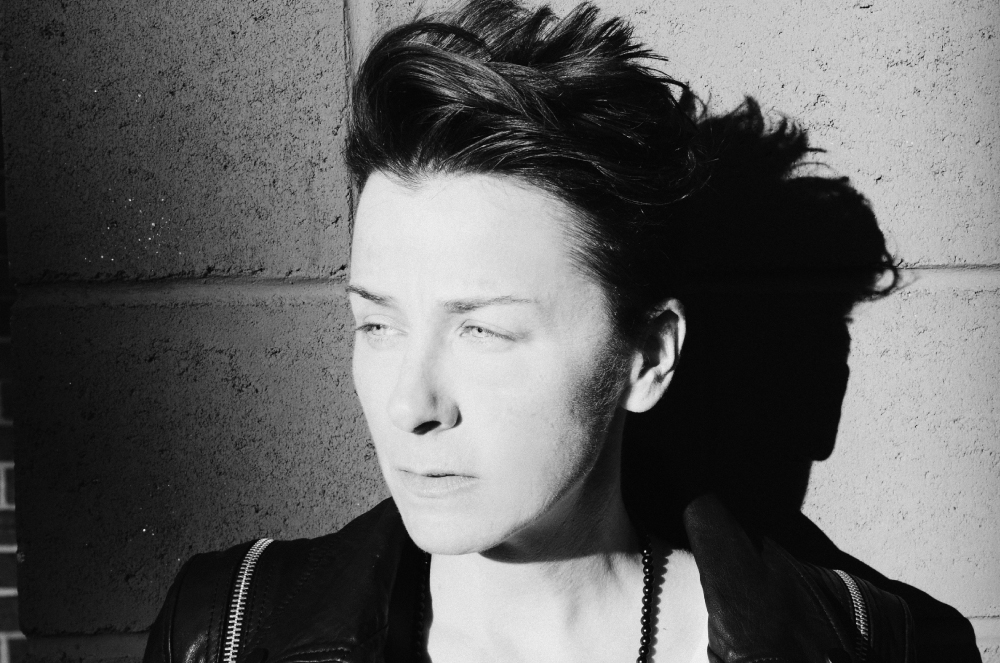
Leslie: You carved out your voice and identity seemingly early on in your career. You’ve been a LGBTQI advocate since the beginning of your career—at a point in time when many artists, actors and musicians were being chastised for being out. What were some of the tensions that fidelity-to-self caused in your career and personal life?
Melissa: Look, I am sure I have not been added at radio stations, not booked at festivals, and not gotten tours because I’m queer but I honestly believe that the percentage this has happened is far less than the amount of respect, opportunity, and praise I have received. I have never thought about my gender identity or my sexual orientation or assumed I was going to be discriminated against before I entered whatever room I was walking into; I have always approached life openly. I have, on occasion, had my feelings hurt by being passed over for certain shows and festivals based on it being a “family friendly” event—but I have also been passed over by LGBTQI events and artists for reasons I can only speculate.
Leslie: Do you feel that the industry is more accepting of LGBTQI artists in light of the leaps forward that have been made in Gay Rights or is it still an uphill battle?
Melissa: I believe the industry—if we are talking about the major label industry—is accepting of whoever is making them money, they do not care who or what you stand for if you are making them money and this is as much a negative as it is a positive. We see this in the film and tv industry with the crazy number of white men who own, produce, write, direct, and act in the major films and tv programming being made—this is the old school way of doing business “if it’s not broken, don’t fix it” this is broken and it does need to be fixed. I believe the industry hasn’t seen it as broken because it makes them money—for an industry that is supposedly so socially conscious and liberal leaning they are doing a horrible job of putting their money where their mouth is. It is all talk—no action, we need change and the only way I can make a change is to continue to walk my walk and change my behaviors, where and what I spend my money, and open the dialog in my classrooms here at Berklee College where we encourage the education of social justice and where we stand proudly as an institution where our ethnic diversity is above the national average accounting for 33% of our population—the third highest of all Liberal Arts Colleges in the United States.
Leslie: What is your creative process like? Do you write collaboratively or is it you tucked away in a room alone with a guitar and a notebook?
Melissa: I tend to write alone, a lot at once—meaning 5-7 songs in a four or five day period of time. I do co-write now; this is a new pursuit. I have a space to write and record in; however, I find that I usually end up writing in my living room with the TV on mute and the computer open somewhat distracted at first and then everything else falls away and I make my way upstairs to demo what I’ve got.
Leslie: Your latest album is an acoustic effort written in a year and recorded at home. The self-titled album has been called a “new beginning” for you at the midpoint of your career. In what way has this album been a milestone for you?
Melissa: It is a back to basics; the grown-up sister or the album “the other side”. I wanted to do this because I had chosen to release again via my own record label and it felt like this approach to production was the most intimate.
Leslie: Finally, in the light of the election, I want to talk about the role of the artist in society. Do you think it is the artist’s job to entertain or to protest (or both)? What do you see your role as a singer-songwriter in this current climate?
Melissa: I have not historically been a social justice based songwriter. I, of course, believe it is the job of artists to produce whatever art is coming to them. I personally listen to Ani DiFranco to hear a voice of social justice. I have found her expression of political climates to be profound.
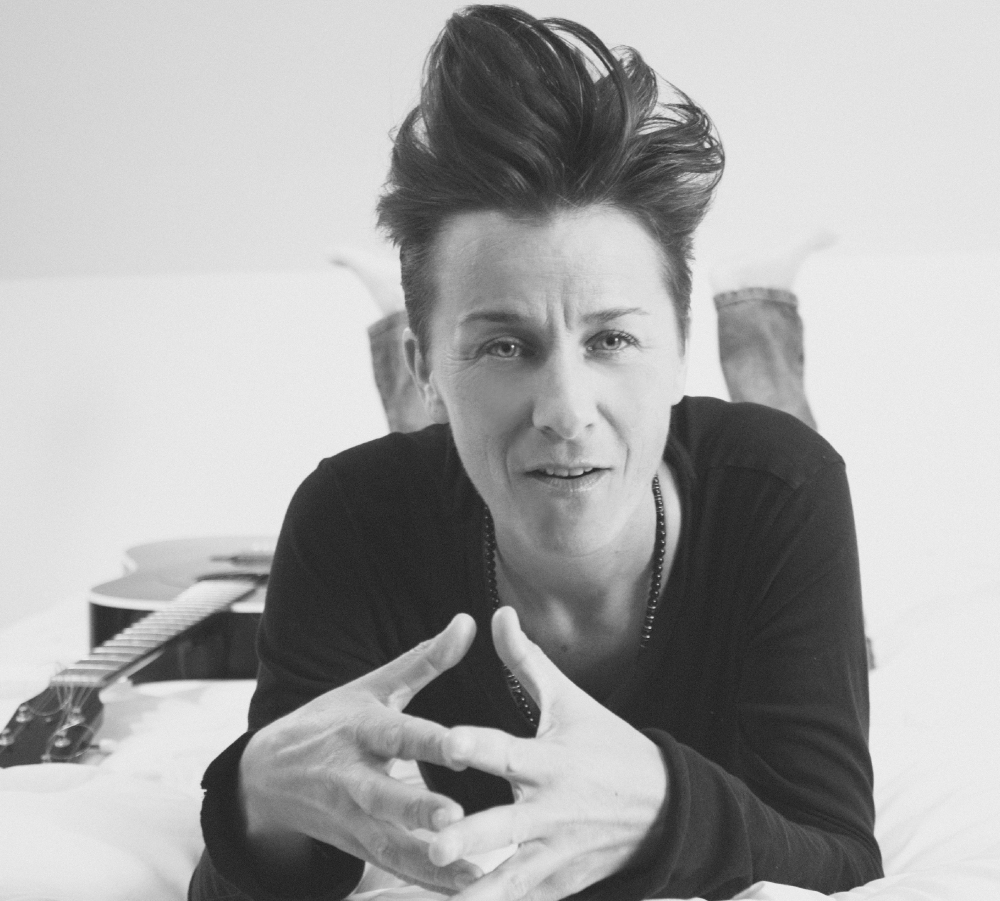
This article is from The Wayfarer’s 5th Anniversary Collectors’ Edition
Visit our store and purchase the entire issue in print or digital format. It edition features: Wayfarer of the Issue: Krista Tippett, host of On Being. In this extended interview our Editor-in-chief L.M. Browning and Krista, discuss poetry’s role in the current world climate and its place in the husbandry of the soul. Reimagining the Possible: An Interview with Indie Singer-songwriter Melissa Ferrick. The featured photographer of the issue is James Scott Smith. The Mindful Kitchen: Acorn Squash Old Fashioned by Kristen Williams. The Contemplative Column: Contemplating Fatherhood by Theodore Richards. The Environmental Column: Light-Time by Gail Collins-Ranadive. Poetry by: Saizan Owen, Jasmine McBeath, Andrew Jarvis, Ben Colandrea, Elizabeth Bolton, David Amerman, Amy Nawrocki, Jason Kirkey, Ellen Grace O’Brian, J.K. McDowell, David Anthony Sam, Leath Tonino, Dede Cummings, Gunilla Norris, and more!
Do you want more than 1 issue? Subscribe to 1 year of The Wayfarer. Here»

L.M. Browning
Editor-in-Chief, The Wayfarer
L.M. Browning is an award-winning author of twelve books. Balancing her passion for writing with her love of learning, Browning sits on the Board of Directors for the Independent Book Publishers’ Association, she is a graduate of the University of London, and a Fellow with the International League of Conservation Writers. She divides her time between her home along Connecticut’s shore and Boston where she is earning an L.B.A. in Creative Writing and Journalism at Harvard University’s Extension School. Look for Leslie’s next book, To Lose the Madness: Field Notes on Trauma, Loss and Radical Authenticity, Spring 2018. Visit her at www.lmbrowning.com
To bring each issue of The Wayfarer to fruition, it takes hundreds of hours each season to craft, edit, design, and distribute the journal. If you find joy and enrichment within our features, please consider becoming a supporter with a small donation. There is no set amount. Whether it is .99 or a few dollars, we appreciate any gift you care to give. While at this time we are not a non-profit all donations do go towards ensuring the future of the journal.
Help us Empower Change by Giving a Little Change!
